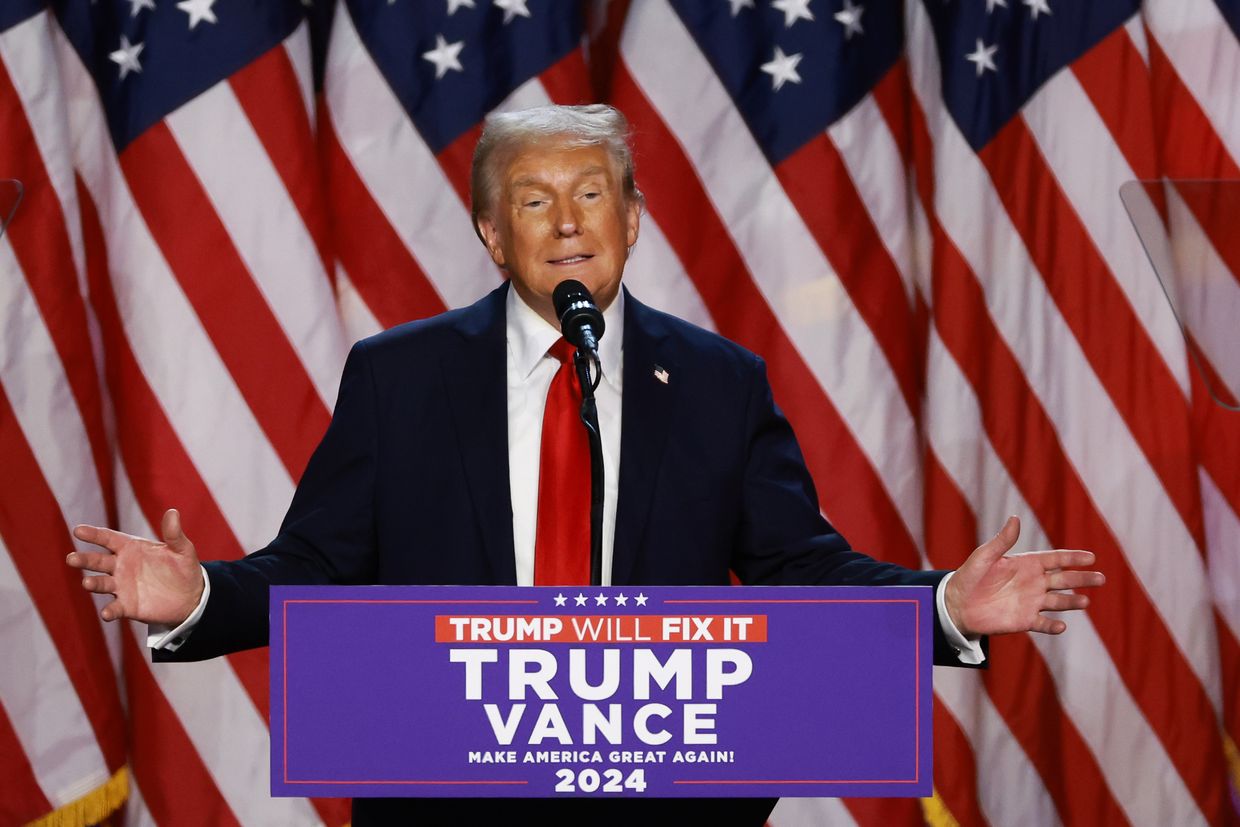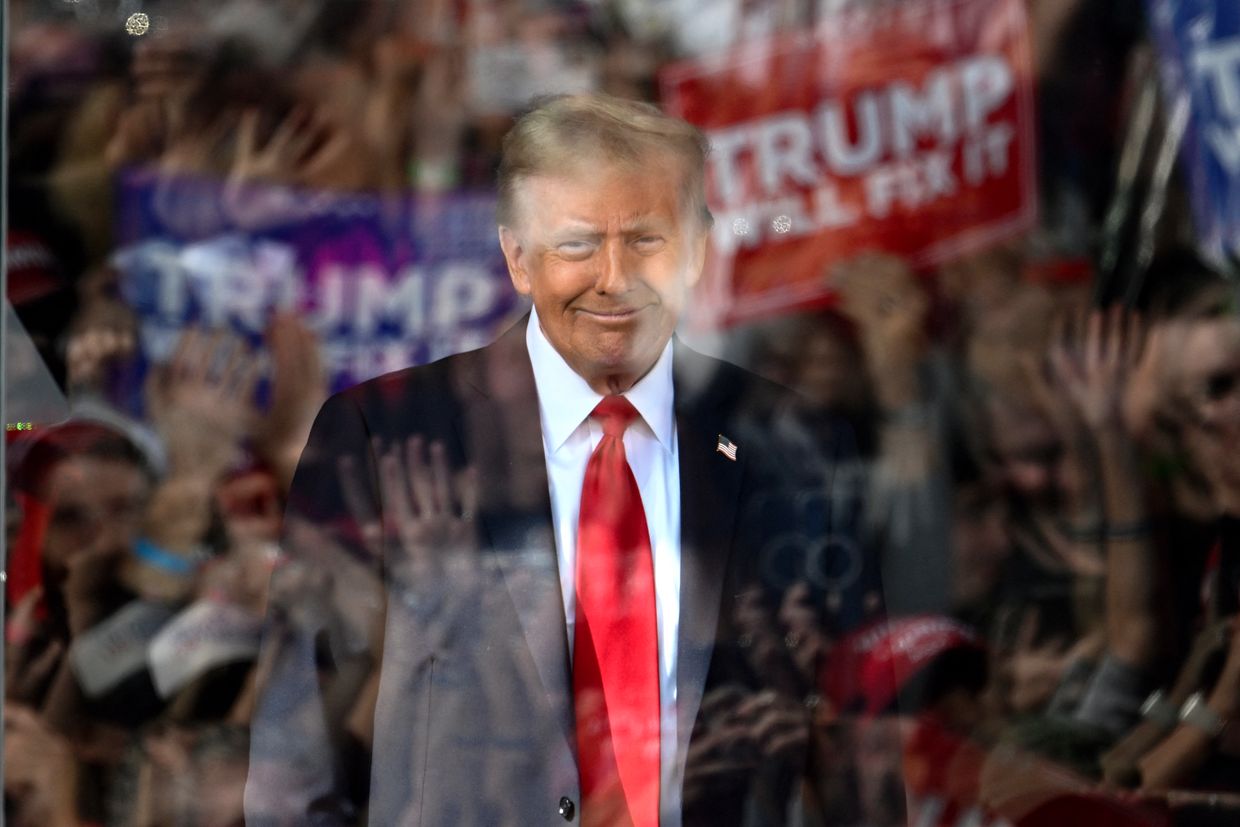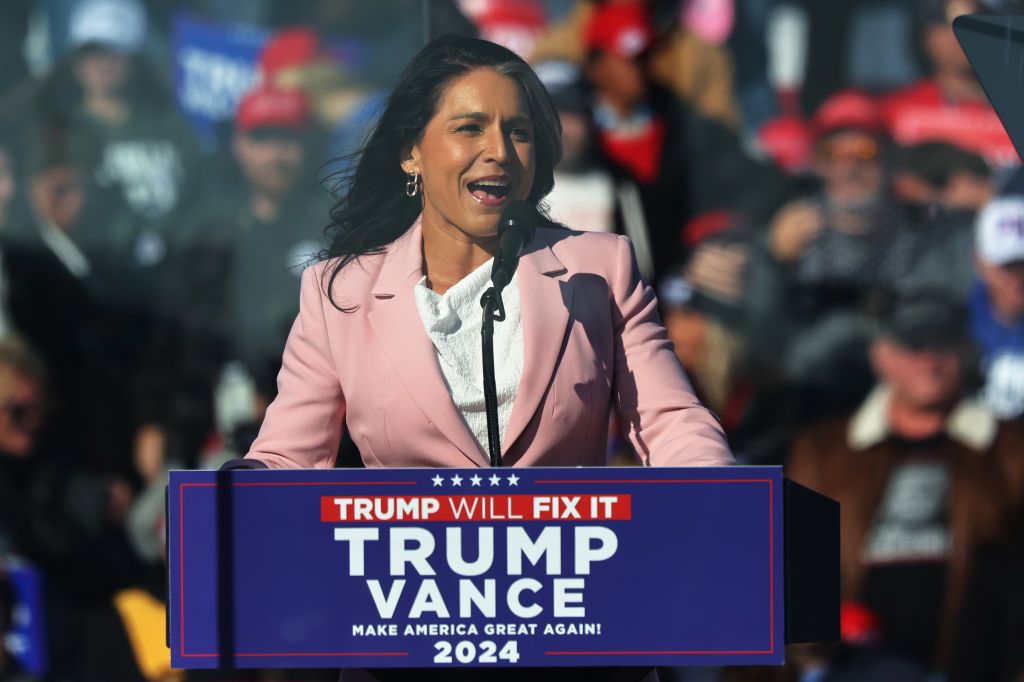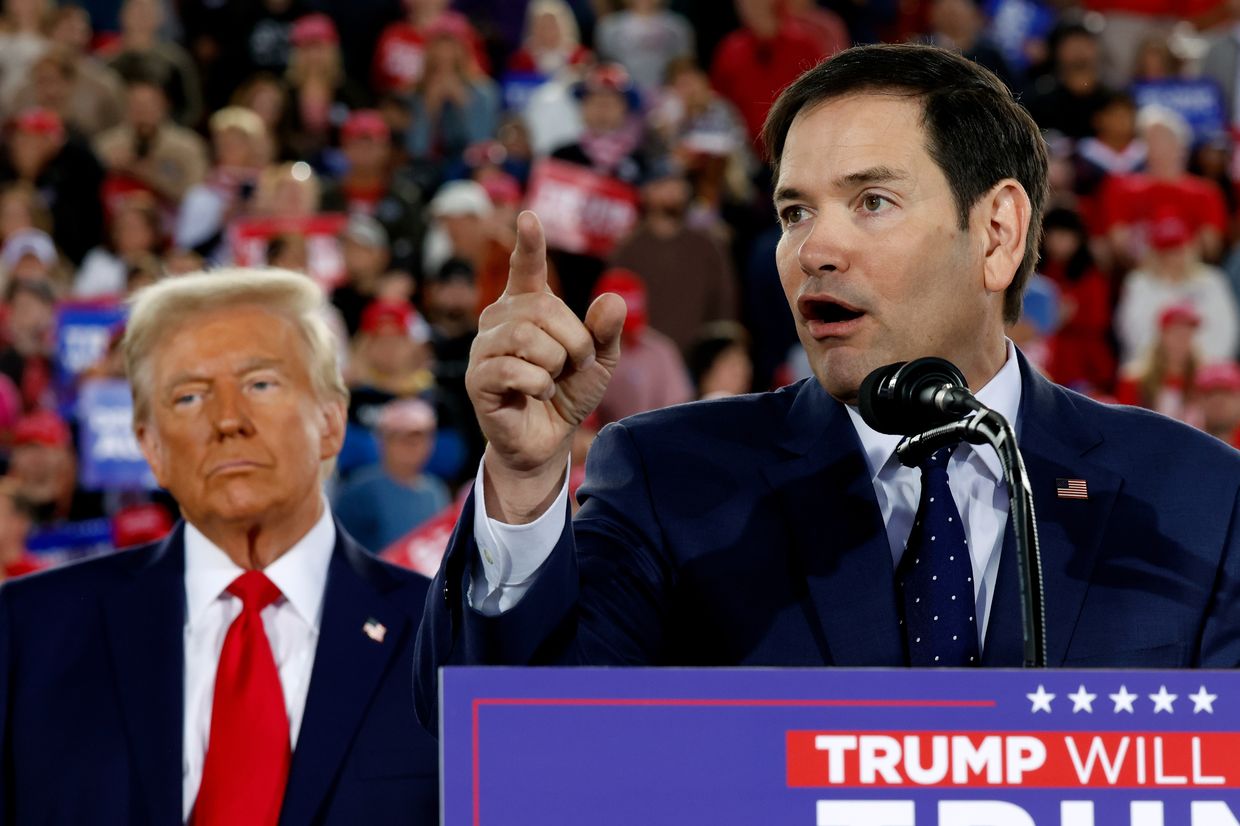Trump's pick for Ukraine envoy backs 'peace through strength,' security guarantees

Keith Kellogg, former national security advisor, speaks during the Conservative Political Action Conference (CPAC) in National Harbor, Maryland, US, on March 4, 2023. (Al Drago/Bloomberg via Getty Images
U.S. President-elect Donald Trump's Nov. 27 decision to choose Keith Kellogg as his special envoy for Ukraine and Russia is not ideal for Kyiv but is an acceptable and reasonable choice for Ukraine, analysts say.
Kellogg has co-authored a peace plan that would freeze the front line in Ukraine, take NATO's accession off the table for an extended period, and partially lift sanctions imposed on Russia.
At the same time, Kellogg has stated that Ukraine should negotiate from a position of strength.
According to his proposals, the U.S. will continue sending military aid to Ukraine and provide security guarantees to Kyiv to prevent further Russian aggression. The plan does not stipulate a reduction in the Ukrainian army's size or recognizing occupied territories as Russian de jure.
"There will be no (outright) pro-Ukrainian appointments (under Trump)," Ukrainian political analyst Volodymyr Fesenko told the Kyiv Independent. "But it's good if an appointee is not anti-Ukrainian."
He argued that Kellogg is not anti-Ukrainian and that he is an experienced and competent professional.
In contrast with Kellogg, Trump's nomination of Tulsi Gabbard for director of national intelligence and Pete Hegseth for defense secretary was met with unease in Kyiv.
"From this standpoint, if you compare (Kellogg) with others, he's absolutely acceptable for Ukraine," Fesenko added. "His position is understandable (for Kyiv), and we can adapt to it."
Kellogg's track record
Kellogg is a retired lieutenant general who served in the Vietnam War and the Gulf War and was the chief operating officer of the Coalition Provisional Authority in Iraq from 2003 to 2004.
During Trump's first presidency, Kellogg was the chief of staff of the National Security Council from 2017 to 2018 and national security advisor to Vice President Mike Pence from 2018 to 2021.
"General Kellogg is very devoted to President Trump, having been with him in all three campaigns plus his time in office, but in my experience, he is a serious guy," Michael O'Hanlon, director of research in the Foreign Policy program at the Brookings Institution, told the Kyiv Independent.
"General Kellogg is very devoted to President Trump, having been with him in all three campaigns plus his time in office."
Daniel Hamilton, another foreign policy expert at the Brookings Institution, also described Kellogg as "an experienced military leader" and "a strong supporter of President Trump."

"Kellogg is close to the president, which is a prerequisite for an effective special envoy. He's also considered to be thoughtful and measured … and is obviously experienced," Peter Rough, director of the Center on Europe and Eurasia at the conservative Hudson Institute, told the Kyiv Independent.
Charly Salonius-Pasternak, lead researcher at the Center on U.S. Politics and Power at the Finnish Institute of International Affairs, said "it's important that any such envoy has 'the ear' of the president and conversely is seen to genuinely represent/speak for Trump."
"In making deals, that's almost more important than any previous policy position Kellogg has had because people can then to some degree trust that what he says will also hold with Trump," he told the Kyiv Independent.
Kellogg's plan
Kellogg co-chairs the Center on American Security at the America First Policy Institute.
In May, Kellogg and another Trump advisor, Frederick Fleitz, co-authored a report called An America First Approach to U.S. National Security for the America First Policy Institute. Among other things, the report presents their vision for a peace settlement in Ukraine.
In June, Reuters reported that Kellogg and Fleitz had proposed to Trump a plan that would cease military aid to Ukraine unless it agrees to hold peace negotiations with Russia.
Hamilton argued that "Kellogg is essentially coming in (to Ukraine) to implement his proposal."
"As someone who has helped draft a proposal for seeking a diplomatic end to the war, Kellogg is poised to push hard to fulfill Trump's pledge to bring Moscow and Kyiv to the negotiating table," Charles Kupchan, a senior fellow at the Council on Foreign Relations, told the Kyiv Independent. "I expect a determined diplomatic effort to bring the war to an end very early in Trump's presidency."
Kellogg's plan, as outlined in his report, envisages freezing the current front line in Ukraine. According to the plan, Ukraine's NATO accession would be taken off the table for "an extended period."
The strategy includes partially lifting the Western sanctions on Russia to encourage the Kremlin to take steps toward peace.
"If Ukraine doesn't want to negotiate, fine, but then accept the fact that you can have enormous losses in your cities and accept the fact that you will have your children killed, accept the fact that you don't have 130,000 dead, you will have 230,000–250,000," Kellogg told the Voice of America in July. "Demographically, what does that do to the country?"
The paper by Kellogg and Fleitz also repeatedly referenced the unsubstantiated theory that NATO expansion triggered Russia's full-scale invasion, which Trump also mentioned in an interview in June.
Stay warm with Ukrainian traditions this winter. Shop our seasonal merch collection.
Upsides for Ukraine
On the upside, Kellogg's plan envisages levies on Russian energy imports to fund Ukraine's reconstruction.
According to his strategy, Ukraine will not be asked to give up its ambition to regain all land seized by Russia, but Kyiv should agree to use diplomatic means only and realize that it might take a long time to regain all the territories.
The strategy also calls for "a comprehensive and verifiable peace deal with security guarantees."
The plan stipulates that, if Ukraine agrees to peace talks, the U.S. would continue sending military aid to Ukraine to deter Russia from attacking it. On the other hand, the U.S. would increase its military support for Ukraine if Russia refuses to accept a peace deal.
Kellogg has also made a number of statements that appear to favor Ukraine.
"We've said very clearly in our paper that Ukraine has fought valiantly," he told the Voice of America. "They are very well led. We think the Russians did clearly an unwarranted invasion of a sovereign state, and this must be addressed."
Kellogg also said that "you want to make sure that Ukrainians are not put at the position when they're operating from weaknesses, but from strength."
"you want to make sure that Ukrainians are not put at the position when they're operating from weaknesses, but from strength."
"Nobody is ever saying that: 'Oh, we just have to make Ukrainians give up land and give it to Russia,'" he continued.
"If the West had provided the equipment that (President Volodymyr) Zelensky asked for, then you probably could have finished the job. You could have gotten into the Sea of Azov through Kherson, splitting them in half, and that is what you wanted to do. So, I blame (U.S. President Joe Biden's) administration and the West to a degree for not supporting Ukraine when they should have," Kellogg said.

He lambasted the Biden administration for failing to provide F-16 fighters, tanks, and long-range weapons quickly enough and in sufficient quantities and to allow Ukraine to "shoot deep into Russia."
"You have to give more arms to them because you can't trust the Russians," Kellogg said. "Sometimes you have to look at what we call in America the long game. And that is security guarantees, financial support, and military support."
To guarantee Ukraine's security, he suggested concluding a "defense agreement" with Kyiv similar to the U.S. accords with South Korea and Taiwan.
Kellogg also said that Russia's demand for Ukraine's demilitarization and a reduction in the size of its army was "unacceptable."
Reasonable choice?
The Ukrainian authorities reacted positively to Kellogg's nomination.
"Keith Kellogg is not a new person for Ukraine. The Embassy of Ukraine in the U.S. has maintained close ties with him, particularly within the framework of expert diplomacy in recent years, and has developed and maintained a good dialogue with him during this time," Ukrainian Foreign Ministry spokesperson Heorhii Tykhyi said on Nov. 28.
Max Bergmann, director of the Europe, Russia, and Eurasia Program at the Center for Strategic and International Studies, told the Kyiv Independent that Kellogg "should recognize the only way to have successful negotiations is to make Ukraine as strong as possible — peace through strength."
"That means continuing aid and getting Congress to pass another assistance package," he added.
"(Kellogg) seems like a reasonable choice," Roland Paris, professor of international affairs at the University of Ottawa and a research associate at Chatham House, told the Kyiv Independent. "He has emphasized the importance of Ukraine negotiating from a position of strength, he seems to understand the threat that (Russian President Vladimir) Putin poses, and he has underscored the importance of providing Ukraine with ironclad U.S. security guarantees, along the lines of the U.S. commitment to South Korea, following any eventual peace negotiation."
Hamilton said Kellogg is "an experienced military professional, not a loose cannon."
"This means the exact nature of U.S. pressure, or the contours of any ceasefire, may evolve," he added.
O'Hanlon said that he was "more hopeful by this choice than" he would have been if it had been Richard Grenell, former ambassador to Germany, who was reportedly among the candidates for the job. He said he hopes Kellogg will help Ukraine to achieve peace from a position of strength.
Fesenko agreed, saying that "Grenell is more radical and more inclined to apply strong pressure (to Ukraine)," while "Kellogg is more pragmatic."

Reuters reported on Nov. 22 that Trump was considering appointing Grenell as his special envoy for Ukraine.
Grenell, who served as the acting director of national intelligence during Trump's first term, is seen as an isolationist and supporter of reducing military aid to Ukraine.
Back in 2022, Grenell said he "applauded" billionaire Elon Musk's peace proposal but added that he would like a "stronger (peace) deal." Musk prompted a scandal the same year by suggesting a peace plan that included Ukraine's neutral status, recognizing Crimea as Russian, and holding a UN-supervised vote on the status of other occupied territories.
In July 2024, Grenell also proposed creating "autonomous zones" in Ukraine as part of a peace deal with Russia. He did not elaborate but the statement was an apparent reference to autonomous zones in the Russian-occupied territories.
Even if Kellogg pushes for a pro-Ukrainian peace deal, it is unclear whether Trump will back him.
Fleitz said in July that Trump had reacted positively to the peace proposal by him and Kellogg but said he was not claiming that Trump agreed with every word of it.
Trump campaign spokesperson Steven Cheung emphasized then that only statements from Trump or his campaign should be taken as official policy positions.
"It is Trump, not Kellogg, who will make decisions," Fesenko said. "Kellogg is just an instrument."
"And will Putin agree (to Kellogg's proposals)? I doubt it."













